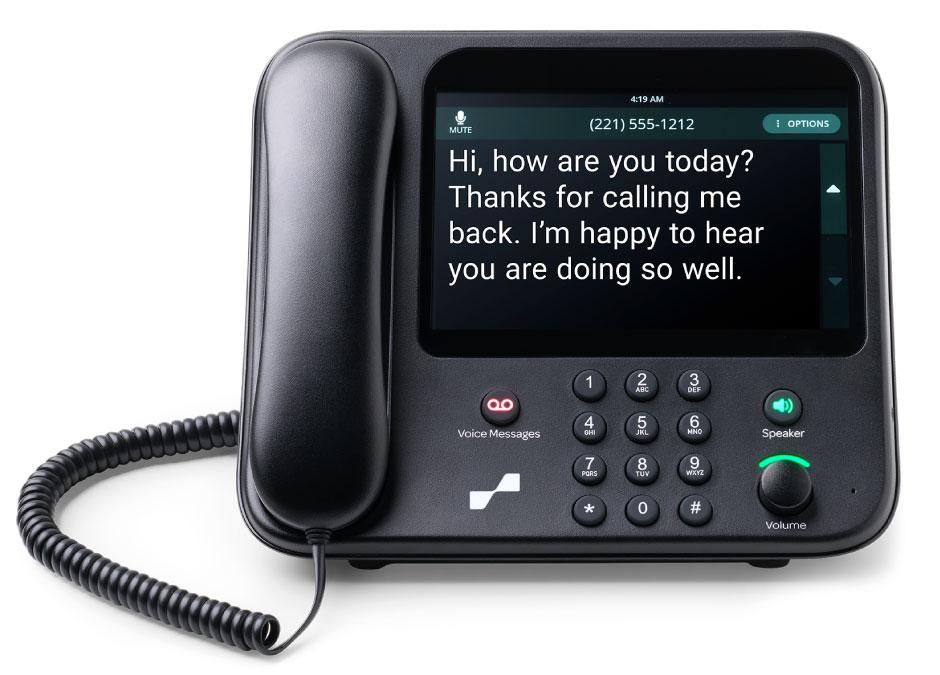
Hearing aids can be expensive, especially when you need a fitting. The cost for hearing aids ranges from $200 for over-the-counter hearing aids to as much as $8,000 for prescription aids and a fitting from an audiologist. If you’re older and have mild to moderate hearing loss, it’s important to know if Medicare covers hearing aids and related hearing services.
Here, we dig into some of the most pressing questions about Medicare coverage for hearing aid and hearing health coverage.
The Big Question: Does Medicare Cover Hearing Aids?
Yes and no. There are different types of Medicare for older adults:
- Original Medicare, known as Part A and Part B.
- Medicare Advantage, known as Part C, and Part D if drug coverage is offered—a private insurance that you can add to Original Medicare that offers extra benefits.
So, let’s rephrase the question and talk specifics.
Does Original Medicare Pay for Hearing Aids?
Original Medicare does not cover hearing aids or the exams to fit custom hearing aids. You pay 100% of the costs for exams and hearing aids under Medicare Parts A and B.
Are Hearing Aids Covered for Seniors on Medicare Advantage Plans?
Most Medicare Advantage plans cover some of the cost of customer and over-the-counter hearing aids and diagnostic testing. Some plans offer a $0 copay for routine hearing exams and low copays on name-brand hearing aids.
If your doctor thinks you have a medical condition that requires treatment that they can diagnose with a balance test or diagnostic hearing exam, Medicare Part B covers 80% of allowable charges. Meaning: you pay up to 20% of the Medicare-approved amount of the exam as well as your Medicare Part B deductible.
The actual amount of covered costs for hearing aids under a Medicare Advantage plan depends on several factors including the specific plan, its deductible, and accrued out-of-pocket costs for the year.
Does Original Medicare Pay for Hearing Test and Other Hearing Services?
Original Medicare (Part A and Part B) covers some diagnostic hearing tests, or “audiology services.” You pay 20% of the Medicare-approved cost for a qualified diagnostic test after you pay your full deductible.
If your doctor thinks you have a medical condition that requires treatment that they can diagnose with a balance test or diagnostic hearing exam, Medicare Part B covers 80% of allowable charges. Meaning: you pay up to 20% of the Medicare-approved amount of the exam as well as your Medicare Part B deductible.

Does a Medicare Advantage Plan Pay for Other Hearing Services?
Medicare Advantage plans are from private insurance companies, so coverage and coverage levels for any type of care vary from plan to plan. Some plans offer hearing healthcare coverage that Medicare Part B doesn’t.
When shopping for a Medicare Advantage plan, if you think you want or need hearing health coverage, find out what hearing healthcare services are covered, if any, before committing.
Know that some Medicare Advantage plans may require a referral from your general physician before you see a specialist.
How Do I Find a Medicare Advantage Plan that Covers Hearing Aids?
If you want or need Advantage plan coverage for hearing care, including testing and hearing aids, you can:
- Research different plans to find out what they cover before signing up or during open enrollment
- Contact your current Medicare Advantage provider to find out if hearing aids and care are covered
A provider can sometimes suggest another of its plans that offers the coverage you need.
If your insurance provider doesn’t have a plan that meets your needs, shop around and switch insurance providers during open enrollment.
Note that to switch plans, you may need to wait until the general open enrollment period from October 15 to December 7.
Are There Specific Insurers I Can Ask First?
Most major insurance providers of Medicare Advantage plans offer at least one plan that covers hearing aids, including UnitedHealthcare, Humana, Aetna, and Blue Cross Blue Shield.
Some people aren’t eligible for these plans. And the plans may have a higher premium than those that don’t pay for hearing aids .
How Do I know if a Doctor Accepts the Plan I Have?
With many Advantage plans, you have to see a doctor or audiologist in the plan’s network—called an in-network provider—for coverage. Selecting a plan that includes your doctor eliminates the need to find a new healthcare provider.
If you already work with an audiologist or other hearing care provider, ask them which Medicare Advantage plans they accept. Or visit the plan’s website and search for your doctor.
Most audiology offices can also check to see if the health plan you have offers hearing aid and testing coverage and whether coverage is for mail-order and/or prescription hearing aids. They can also tell you how much your plan covers versus what you pay directly.

What Else Do I Need to Know?
When you enroll in a Medicare Advantage plan, you may have to pay a monthly premium in addition to the premium you pay for Medicare Part B. Having a Medicare Advantage plan requires that you pay your Part B premium.
You may also have a copayment (a fixed amount you pay for every visit or prescription) and coinsurance (a standard percentage of costs you pay on top of your copayment after you meet your deductible).
Some Advantage plans pay a percentage of hearing aid costs, while others offer a set amount that applies toward the purchase of hearing aids. For example:
- If your plan pays 50% of the cost of hearing aids:
- You pay $2,500 out of pocket for hearing aids that cost $5,000.
- You pay $1,500 out of pocket for hearing aids that cost $3,000.
- If your plan pays a set amount of, say, $1,500, you pay $3,500 out of pocket for the $5,000 hearing aids and $1,500 for the $3,000 hearing aids.
There may also be an annual limit on the amount of money your plan pays toward routine hearing care and hearing aids.
Can I Just Get a Medicare Advantage Plan, so I Have Hearing Aid Coverage?
No. You must have Original Medicare to get a Medicare Advantage Plan. And even if your Medicare Advantage plan charges zero premiums, you have to pay your monthly premium for Original Medicare.
Original Medicare includes Medicare Part A (hospital insurance), Medicare Part B (medical insurance), and often Medicare prescription drug coverage (Part D).
A Medicare Advantage plan (sometimes called Part C or MA plans) is an add on to Original Medicare. They’re available through private insurance companies approved by Medicare.
Medicare pays a fixed amount each month to companies that offer Medicare Advantage plans. Medicare Advantage plans must follow rules set by Medicare, but each MA plan determines how much it charges for out-of-pocket costs.
Important Information on Medicare Advantage Plans and Hearing Coverage
Even though some Medicare Advantage plans claim to offer a hearing aid benefit, do some homework, and understand how your plan works.
Sometimes the hearing aid benefit is limited to low-end hearing aids that are less effective than even older hearing aid technology in hearing aids you already have.
Some plans significantly restrict selection of providers and/or treatment choices, making the plan’s hearing aid coverage of little or no benefit.
Before you sign up for an Advantage plan, check the benefits and ensure you know what you’re getting.
What Is Medigap and Does It Cover Hearing Aids?
Medigap, or Medicare Supplement Insurance, is an added private insurance plan you can buy to cover copayments, deductibles, and costs Original Medicare doesn’t cover.
Medigap plans don’t cover hearing aids. But if you have Medigap Plan C or F, it covers 100% of your coinsurance for a hearing diagnostic test, so you pay nothing for the test.
Some states, such as California and Nevada, offer a Medigap Plan Innovative F where some insurers cover $750 of hearing aids costs each year.
A Medicare Supplement Insurance or Medigap plan can help cover out-of-pocket costs for a permanent hearing device, such as a cochlear implant.
What About Veterans? Does the VA Cover Hearing Aid Services?
The Department of Veterans Affairs (VA) covers the cost of hearing aids, bone conduction hearing aids (BAHA), and other hearing care for veterans. Contact your local VA about audiological services.
Are There Other Ways to Get Hearing Aids?
There are other hearing health providers as well as service organizations you can investigate, including:
- American Hearing Benefits
- Amplifon
- Audionet America
- Connect Hearing
- Hearing Life
- Hearing USA
- Nations Hearing
- Sometra
- Tru Hearing
- United Healthcare Hearing
- Zip Hearing
Other than Use Hearing Aids, What Can I Do for Hearing Loss?
Added ways to help hearing loss include cochlear implants or bone conduction hearing aids (BAHA), call captioning, and closed captioning.
Cochlear implants, or BAHA, are electronic units surgically implanted behind the ear. They send sound directly to the auditory nerve that the brain interprets as sound, including speech
Call captioning is a service over specific phones or cell phone apps that turns spoken language into readable captions. Some services use Internet Protocol Captioned Telephone Service (IP-CTS) rather than the standard phone network. They transform speech into captions that display on a screen. Call Captioning providers include CaptionCall by Sorenson and CaptionCall Mobile.
Closed captioning turns the audio portion of media—like a video or TV program—that supports them into text that displays on your TV, computer, or phone screen. You can turn closed captioning on or off, and it’s free.
Does Medicare Cover Cochlear Implants?

The cost of cochlear implants and other BAHA devices is usually covered by Medicare Part B and Part D if a doctor deems the implant medically necessary. If your doctor decides you need a cochlear implant, you’ll most likely pay 20% of the Medicare-approved amount for the implant after paying your deductible.
Is Call Captioning Covered by Medicare?
If your hearing difficulties make captioned telephone service a necessity, you can access the service and equipment at no cost. Like Medicare, call captioning is federally funded. It’s available to anyone who’ hearing loss makes it necessary.
You can self-certify that you have hearing loss and need call captioning and order service online or through your audiologist or other hearing care provider (HCP).
My Plan Should Cover Hearing Aids, but My Claim Was Denied. What Can I Do?
If you believe you were wrongly denied coverage for hearing aids or any health care, talk to your insurance company. If they won’t help, you can file a complaint with your state’s insurance department and/or file a claim complaint with Medicare.
More Medicare and Hearing Care Coverage Information
- Medicare.gov Search Results for “Hearing”
- Medicare information line for TTY users: 1-877-486-2048
- Visit Medicare.gov to learn more about the features and benefits of Medicare
- Questions or concerns Medicare administration line: 1-800-MEDICARE (1-800-633-4227)

